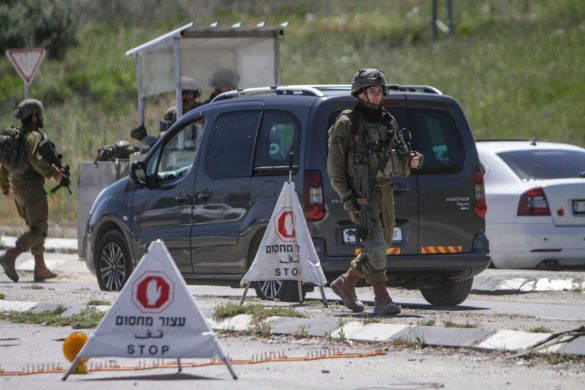Flere internationale hjælpeorganisationer, herunder Dansk Flygtningehjælp, har indstillet arbejdet i Libyen, efter volden atter er blusset op. Libyske organisationer har svært ved at løfte opgaven med at hjælpe titusinder af libyere.
DUBAI, 7 August 2014 (IRIN) – Libya’s deteriorating security situation has led to an exodus of aid workers and suspension of development programmes, leaving tens of thousands of displaced and vulnerable people relying on skeleton networks manned in part by volunteers.
In recent weeks, thousands of families have fled their homes in the cities of Tripoli and Benghazi, following clashes between rival militias, factions of whom seized control of the capital’s international airport and a military base in Benghazi, and set fire to a major fuel depot.
This latest surge in violence comes after a highly contested election in June and while some steps have been taken towards forming a new parliament, the authorities are still struggling to manage law and order, prompting claims the country is heading back towards civil war.
But as the needs grow, the capacity to respond is shrinking. The bulk of international organizations are now operating either remotely from neighbouring Tunisia via local partners, or in some cases, not at all.
Existing caseloads
Before this latest unrest, Libya was already straining under the weight of a surging population of migrants using the North African country as an exit point to Europe, while supporting an existing caseload of more than 50,000 internally displaced persons (IDPs), uprooted during the 2011 NATO-backed overthrow of former president Muammar Gaddafi.
The latest surge of violence has affected around 500,000 families, with at least 9,000 displaced, according to the International Medical Corps (IMC).
Most Western embassies and international companies have pulled out nearly all their staff, a number evacuated by boat due to the airport in Tripoli being inaccessible – while aid agencies and UN bodies have taken similar approaches.
Among the major aid organizations that have suspended or cancelled their work on the ground are the International Committee of the Red Cross (ICRC), Médecins Sans Frontières (MSF), and the Danish Refugee Council (DRC).
“Most organizations have pulled out of Libya due to the security situation,” explained Tunis-based Muftah Etwilb, regional representative for North Africa at the International Federation of the Red Cross and Red Crescent Societies (IFRC).
“The Libyan Red Crescent (LRC) is really one of the few actors left on the ground, along with a handful of national NGOs.”
“The LRC volunteers are doing a fantastic job despite the difficult and challenging environment but at some point they will need support,” he said, adding that assessments were ongoing and a potential deployment by Federation members from Tunisia was under consideration.
The ICRC’s withdrawal was prompted by the assassination of 42-year-old Swiss national Michael Greub, who was shot by a group of armed men in a targeted attack as he left a meeting in the eastern city of Sirte.
The organization’s offices in Misrata and Benghazi had also been attacked in the past.
Funding shortages
Other local bodies appear woefully unprepared. The Libyan Humanitarian Relief Agency (LibAid), which was established under the prime minister’s office following Gaddafi’s fall, was supposed to lead the humanitarian response, but staff there say it has recently been able to do little due to funding shortages.
The agency’s secretary-general, Khaled Ben-Ali, told IRIN:
“We have not received any budget [from the government] for a year and a half… It is critical now. The IDPs have not been getting any support from LibAid… no food rations or any help for the past six months or more.”
Describing LibAid’s capacity to respond to an increase in needs as “almost zero”, he said he had contacted the government “hundreds” of times for funding but feels there is little interest in supporting the IDPs.
He and his board have tendered their resignation, he said.
Supplies running low
Læs hele artiklen hos IRIN News














